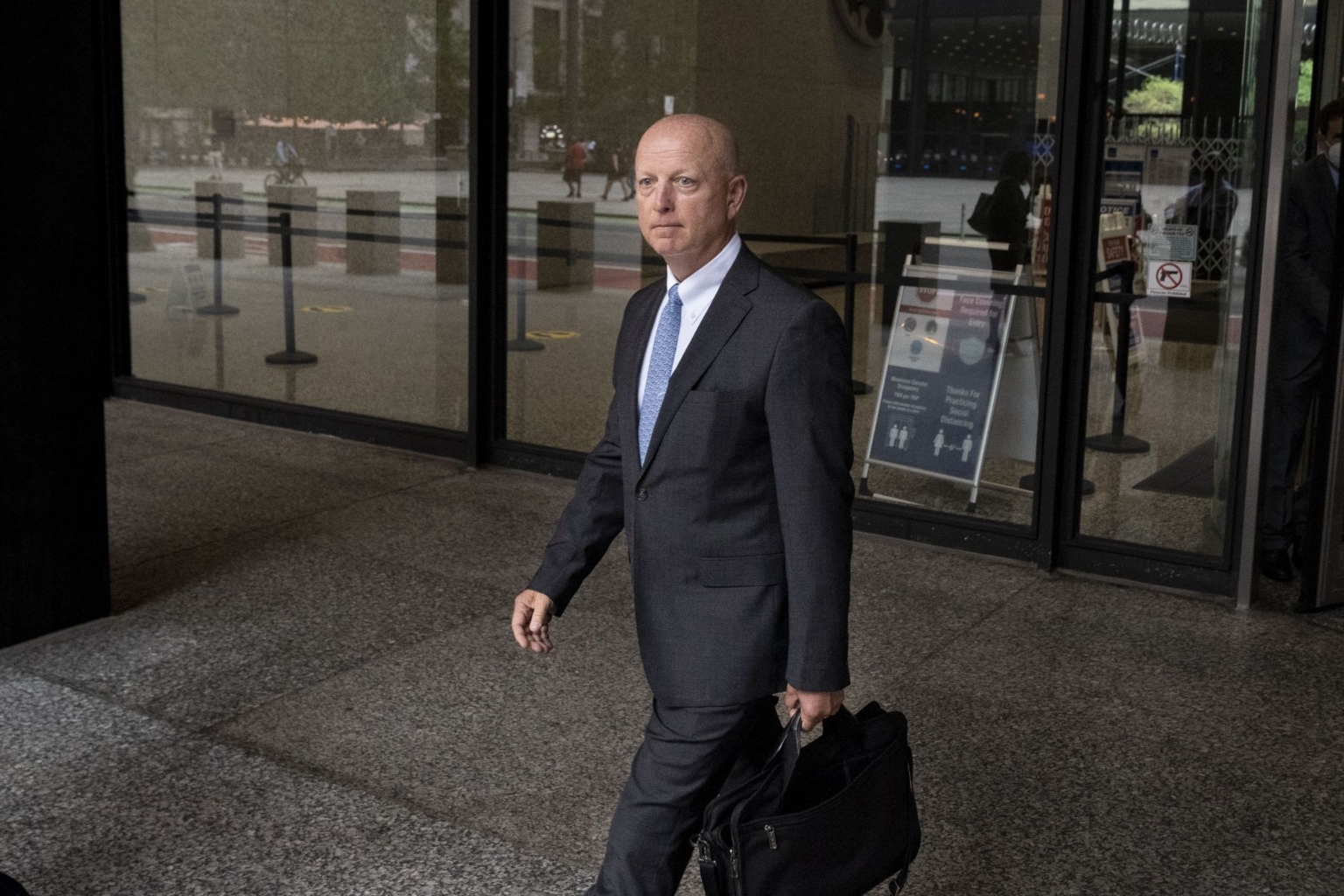JPMorgan trader spoof so fast that colleagues joke he is double-jointed
Sign up now: Get ST's newsletters delivered to your inbox

Former JPMorgan Chase & Co precious metals trader Gregg Smith departing from federal court in Chicago, on July 8, 2022.
PHOTO: BLOOMBERG
MANCHESTER (BLOOMBERG) - Gregg Smith clicked his computer mouse so rapidly to place and cancel bogus gold and silver orders for Bear Stearns and later JPMorgan Chase & Co that his colleagues would joke that he needed to put ice on his fingers to cool them down afterwards, or that he must be double-jointed.
That was how his former protege, Christian Trunz, described for jurors how he watched Smith use so-called "spoof" trades - large orders intended to manipulate prices that were quickly cancelled.
Trunz, 37, said he learnt how to spoof from Smith and others after joining Bear Stearns out of college in 2007, shortly before the bank was acquired by JPMorgan.
To place and cancel the orders fast required a "rapid succession of clicking on a mouse", and Smith, the desk's top trader, was particularly good at it, Trunz told a federal jury in Chicago on Tuesday (July 19).
That clicking was easy for everyone on the desk to hear, according to Trunz, who sat next to Smith for years and said he often pulled his chair alongside his mentor's computer screen to watch him trade.
Trunz is the third former trader to testify at the fraud and racketeering trial of Smith and two senior employee, managing director Michael Nowak and hedge-fund salesman Jeffrey Ruffo, at JPMorgan's precious metals desk. They are accused of systematically cheating to help themselves and their top clients for years.
"This was an open strategy on the desk," said Trunz, who has pleaded guilty to spoofing charges and is cooperating with prosecutors. "It wasn't hidden."
Speed was essential to successfully spoof, especially as a growing share of the precious metals market was being dominated by firms using computer algorithms to buy and sell futures contracts in fractions of a second, according to Trunz.
"We fully believed this was a battle" between the bank and the so-called algos, Trunz said. "This was the first time when machines were interacting with humans on a trading platform. It was man versus machine."
The goal of spoofing was to trick the rival computers into buying or selling to benefit JPMorgan's position, by using a large volume of bogus orders to create the false market impression, he said.
"Those trades were deceptive," Trunz said of the thousands of spoof orders the desk placed over the years. "They were used to bring out a reaction from those algorithms to get what we needed done."
Trunz, whose father worked at JPMorgan for decades and was a senior executive, was trading precious metals for the bank in New York, Singapore and London from 2007 to 2019, when he pleaded guilty. He said he idolised Smith, Nowak and Ruffo and sought to learn as much as he could from them so he could emulate their success.
"We all traded that way," Trunz said. "We utilised that strategy on the desk to make money for ourselves and for our clients."


